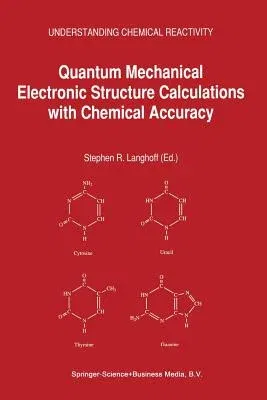Quantum Mechanical Electronic Structure Calculations with Chemical Accuracy (Softcover Reprint of the Original 1st 1995)Paperback - Softcover Reprint of the Original 1st 1995, 12 October 2012

Qty
1
Turbo
Ships in 2 - 3 days
In Stock
Free Delivery
Cash on Delivery
15 Days
Free Returns
Secure Checkout
Part of Series
Understanding Chemical Reactivity
Print Length
449 pages
Language
English
Publisher
Springer
Date Published
12 Oct 2012
ISBN-10
9401040877
ISBN-13
9789401040877
Description
Product Details
Book Edition:
Softcover Reprint of the Original 1st 1995
Book Format:
Paperback
Country of Origin:
NL
Date Published:
12 October 2012
Dimensions:
23.39 x
15.6 x
2.36 cm
ISBN-10:
9401040877
ISBN-13:
9789401040877
Language:
English
Location:
Dordrecht
Pages:
449
Publisher:
Weight:
639.56 gm

